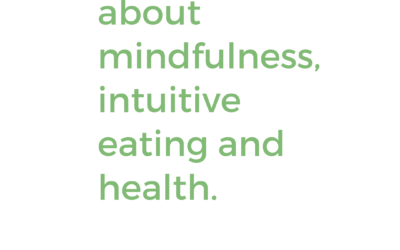GERD, or gastroesophageal reflux disease, is a condition that affects 10-20% of Americans and develops when the reflux of stomach contents causes painful and troublesome symptoms and complications. It is typically characterized by a burning feeling rising from the stomach or lower chest up towards the neck (heartburn), regurgitation of stomach contents into throat, chronic cough, consistently bad breath, dental erosions and chronic laryngitis. Symptoms of reflux are usually worse after meals and are quickly relieved by the use of antacids or herbal demulcents (discussed later on).
Causes of GERD can include slow gastric emptying, less than normal salvia flow, oxidative stress, food allergy, obesity, smoking, pregnancy, stress and hiatal hernia. A genetic predisposition might also contribute, as can the use of certain medications like calcium channel blockers, morphine, meperidone, diazepam, barbiturates and sildenafil.
Treatment Options
Traditional therapies for GERD center on the use of antacids, proton pump inhibitors (PPI’s) and histamine type 2 receptor antagonists (H2RAs) for treatment. These are better known as Prilosec and Omeprazole. Doctors prescribe these drugs with the assumption that GERD is due, in part to higher than normal gastric acid secretions. These drugs can help GERD symptoms dissipate quickly, but the side effects of these drugs fail to treat the underlying cause of GERD and are associated with diarrhea, nausea, abdominal pain, headaches, an increased risk of gastroenteritis, stomach and small intestine bacterial overgrowth, pneumonia, spinal fracture and vitamin/mineral malabsorption. Bacterial overgrowth is difficult to treat and is best avoided.
Some naturopathic and holistic practitioners will argue that the cause of GERD is actually low stomach acid. This hypothesis is highly debated but the treatment protocol is typically much less invasive than a conventional drug based approach and typically uses agents like Betaine HCl and pepsin to treat the condition.
What is the best treatment option for me?
Research finds, that most GERD sufferers have normal or slightly above normal acid production in the stomach, not abnormally low or abnormally high stomach acid. Knowing this, we should aim to treat GERD using effective, research based methods that do not upset the natural balance of the body or alter the stomach acid secretions in a negative way. Therefore, it’s prudent that you work with your health care provider to find the least harmful approach to treating the underlying cause of your symptoms.
Dietary Influences on GERD
There are specific foods that can influence the development of GERD. The following are known to worsen the symptoms of GERD through a variety of mechanisms. It’s reasonable to consider removing these foods from your diet temporarily to see if your symptoms improve.
Remove These Foods:
- ALCOHOL
- Coffee
- Fatty foods (especially deep fried, processed fats)
- Peppermint essential oils
- Tomato and citrus juices **
- Soft drinks **
- Spicy foods **
**It’s notable to mention that the last three items don’t necessarily contribute to the progression of GERD, but are more likely a trigger of the pain. Usually once GERD is healed, these foods can be enjoyed in moderation again.
Habits that Make GERD Worse:
- Consuming too large of meals
- Consuming fluids with meals
- Eating too close to bedtime (<3 hours)
- Chewing foods inadequately
Avoiding trigger foods, as mentioned above, will greatly assist in helping reduce symptoms and complications of GERD. In addition, you can add certain foods to your diet to help protect your esophagus from damage. The foods listed in the table below are rich in polyphenols and antioxidants and promote health in your whole body.
Foods to Eat When You Have GERD
- Colorful array of fruits
- Colorful array of vegetables (specifically carrot juice!)
- Whole grains and legumes (try different colors to maximize polyphenol intake)
You may also talk to your doctor about zinc supplementation (15-30 mg/day) and beta carotene supplementation (equivalent to 8 oz of carrot juice/day) as effective treatments options. These agents have little to no side effects.
Lifestyle Considerations
Smoking and alcohol consumption are two of the biggest contributors to GERD in a majority of the U.S. population. If you suffer from GERD and smoke or drink, you may consider cutting back or quitting these habits completely if you wish to feel better.
If smoking and drinking alcohol are not part of your lifestyle, it’s important to look at the other predisposing factors for GERD (listed above) and work with your health care provider to effectively manage and treat your condition with the factors that are within your control.
Treating the Underlying Disease
It’s important to remember that the development of GERD is different for everyone and should be treated as such, especially if you want to avoid the use of long-term medication.
By opting not to treat the underlying cause of your GERD symptoms, you could put yourself at higher risk for developing a painful condition called Barrett’s Esophagitis and, ultimately, esophageal cancer. Traditional antacids may minimize the immediate risk, but the long term use of these drugs will likely contributed to a wide variety of other negative side effects, as mentioned in the above sections. It’s to your long-term advantage to be proactive and realistic in your approach to treating GERD.
Herbals and Natural Remedies
Relieving the acute and painful symptoms associated with GERD is very important, especially to the person experiencing symptoms. Below are some options you might review with you health care provider as effective treatments that have minimal if any side effects.
The use of gastrointestinal demulcents are very effective at providing symptom relief and do not come with the unwanted side effects of antacids. Marshmallow root powder, slippery elm powder, and licorice powder have all been noted effective when taken mixed in water or juice. They are not as powerful in tablet or pill form because they require direct contact with the esophageal lining for healing. Curcumin (turmeric) is also effective and decreasing symptoms.
Melatonin has shown promise as a esophageal protector and is capable of healing severe esophageal ulcerations. Ask your doctor about its use in place of, or in addition to, drugs.
There is clinical evidence that one strain of probiotic is also useful in treating GERD. It’s name is Lactobacillus reuteri Protectis and is most frequently used in infants with reflux. Ongoing research is being done on probiotics and GERD so stay in touch with your doctor about probiotics and GERD management.
Putting it all together
From a dietary and lifestyle perspective, the following recommendations can be made to most GERD suffers:
General Diet and Lifestyle Recommendations
- Eat a colorful array of fruits and vegetables (specifically carrot juice)
- Eat whole grains and legumes (trying different colored grains to maximize polyphenol intake)
- Eat your food slowly and chew thoroughly before swallowing
- Consume fluids in between meals instead of with meals
- Eat small frequent meals, opposed to large infrequent meals
- Try to eat your last meal 3 hours before bedtime
- Avoid alcohol and smoking
- Avoid foods that have been deep fried or prepared with a lot of fat (including nuts and seeds)
- Minimize caffeine and chocolate intake
- Manage physical, mental, and emotional stress
- Raise bed-head about 1-2 feet
- Maintain a healthy weight
- If all else fails, consider removing gluten from diet and/or rule out Celiac disease
References:
- Sult T. Digestive, Absorptive, and Microbiological Imbalances. In Baker SM, Bennett P, Bland JS, Galland L, et al (eds). Textbook of Functional Medicine. Institute of Functional Medicine. 2010. Pages 327-335.
- Hawrelak, J. Gastro-oesophageal reflux disease. In: Pizzorno JE, Murray M (eds). Textbook of Natural Medicine (4th ed). Elsevier. 2013. Pages 101-114.


